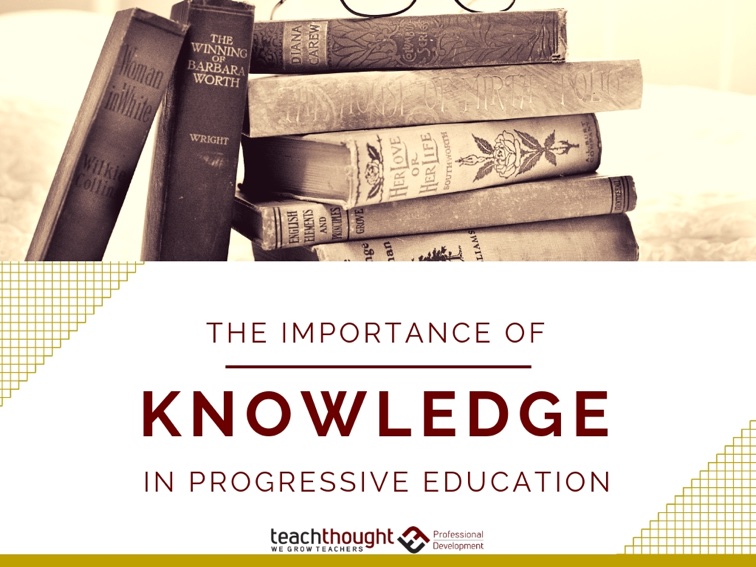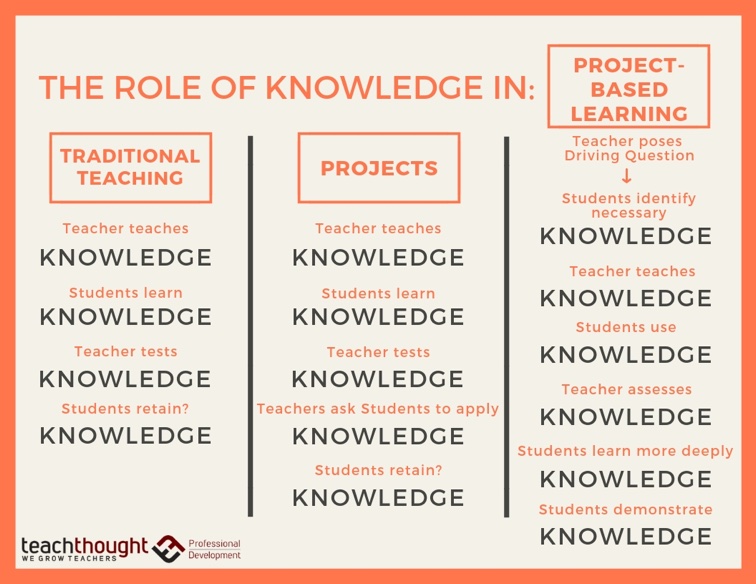
What Is The Importance Of Knowledge In Progressive Education?
contributed by Drew Perkins
I recently recorded a podcast that explored differing approaches to the role and importance of knowledge in teaching and learning.
In the podcast, the claim by Katharine Birbalsingh was that progressive education has foregone the teaching of knowledge to the great detriment of students. While I don’t deny that this may happen in some learning environments, it’s certainly not how I would describe quality progressive (or non-progressive for that matter) education. Instead what we hope to see and help grow in classrooms in which we work is an acquisition and use of necessary knowledge and understanding through a process of rich inquiry.
Listen Here
The idea that students need to acquire and even master knowledge before they should attempt to do things like apply, analyze, or synthesize, or even create strikes me as a not only traditional but limiting approach. While it can yield some benefits, it misses an opportunity to build other vital skills simultaneously and furthers the “playing school” narrative of compliance vs. commitment where we so often lose students interest and engagement.
If we’re viewing traditional vs. progressive teaching on a spectrum you might see the most traditional style on one end where the teacher is presenting the information or knowledge with the expectation that students will take it in, understand it, and be able to show they remember it on a test.
Moving along towards more progressive we might see teachers “front-loading” content (aka knowledge) before asking them to do some critical thinking with it. These are often called “projects” and at least there’s an attempt to engage students in critical thinking but not before they show they’ve come to some level of mastery of the things the teacher wants them to remember and understand.
If we were to follow the spectrum towards the “most progressive” we’d see much more radical approaches like unschooling or free school where a standard curriculum of knowledge can become elusive. Perhaps this is what Katharine Birbalsingh has in mind when she defines progressive education but this certainly isn’t the majority.
The sweet spot for progressive teaching and learning may see teachers using rich inquiry to pull that knowledge and thinking from students by asking them to create from the onset. We believe there is real value and necessity for certain knowledge and want learners to learn it deeply by using it in multiple ways and for multiple reasons.

I’ve discussed this previously in Using Project-Based Learning To Flip Bloom’s Taxonomy For Deeper Learning but this process doesn’t minimize the role of knowledge. Instead, it places knowledge in an active role as learners identify and use what they need to know and learn in multiple ways to answer the Driving Question for a project. The goal here is to deepen the knowledge and understanding, not disregard it, all the while developing the skill of inquiry that we believe is vital for the modern world.
This type of teaching is difficult, but all teaching is difficult. Great progressive education requires teachers who are masterful at the design and architecture of a unit while also craftsmanlike in their employment of inquiry to know just how much and when to scaffold and support learning.
Providing all the knowledge and content as learning targets or “I Can” statements is kind of like watching a movie with the ending revealed on the wall next to the screen. Instead, let’s pull that knowledge and thinking from learners in a way that empowers them to transfer that process to other tasks and projects in their lives…school and non-school.
Sometimes I like to joke when working with schools that we’re not talking about “free range chicken” when we’re helping them grow their constructivist teaching chops. That’s to say that we aren’t in favor of classrooms where kids are just intellectually wandering about with no teacher directing the learning.
In fact, great constructivist learning emphasizes knowledge (and understanding) and we would push back on anything different.